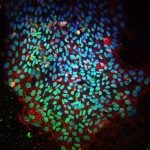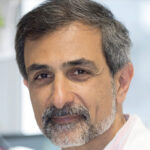Link to Pubmed [PMID] – 28353069
J. Muscle Res. Cell. Motil. 2017 Mar;
In eukaryote cells, chromatin appears in several forms and is composed of genomic DNA, protein and RNA. The protein content of chromatin is composed primarily of core histones that are packaged into nucleosomes resulting in the condensation of the DNA. Several epigenetic mechanisms regulate the stability of the nucleosomes and the protein-protein interactions that modify the transcriptional activity of the DNA. Interestingly, epigenetic control of gene expression has recently emerged as a relevant mechanism involved in the regulation of many different biological processes including that of muscle development, muscle mass maintenance, function, and phenotype in health and disease. Recent investigations have shed light into the epigenetic control of biological mechanisms that are key regulators of embryonic muscle development and postnatal myogenesis. In the present review article, we provide a summary of the contents discussed in session 08, titled “Epigenetics of muscle regeneration”, during the course of the 45th European Muscle Conference, which was celebrated in Montpellier (France) in September 2016. The main theme of that session was to highlight the most recent progress on the role of epigenetics in the regulation of muscle development and regeneration. The current mini-review has been divided into two major sections. On the one hand, a brief introduction on the topic of myogenesis is offered for the non-specialized reader. On the other, a brief overview of the most relevant epigenetic players that have been shown to control muscle development and regeneration is given.

